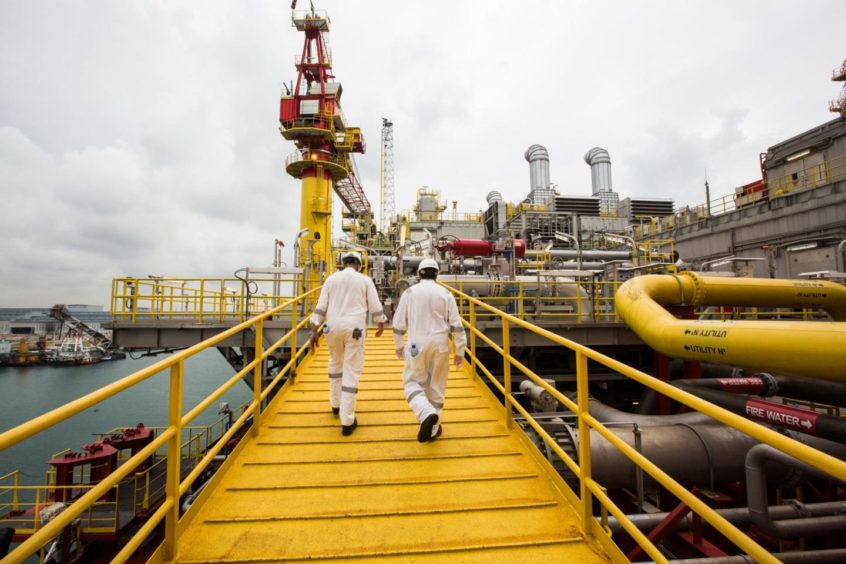
Tullow Oil (LON:TLW) has reached an “inflection point” with the start up of Jubilee South East (JSE) cutting back on spending, while also seeing debt fall.
Starting up the Jubilee field extension has increased production at the asset to around 108,000 barrels per day gross. It started two producers on JSE in July and a third this month, with two water injectors to start this year.
In the first half of the year, gross production on Jubilee was 72,400 bpd, of which 28,200 bpd were net to Tullow. It expects Jubilee to average gross production of around 90,000 bpd for the full year, of which 35,000 bpd are net. The gross figure is down 5,000 bpd from previous expectations, with Tullow citing a slightly slower start up.
As a result, Tullow now expects group production to be 58,000-60,000 bpd this year, down from 58,000-64,000 bpd.
While production forecasts were trimmed, Tullow also saw prices fall, with revenue down at $777 million. It reported $859mn for the same period of 2022.
Harvest time
However, spending will fall next year and in 2025, while Tullow expects to shift into a mode of collecting revenues.
“For the last two and a half years we have relentlessly focused on capital discipline, operational performance and appropriate investment in our assets,” said CEO Rahul Dhir.
“We now switch to harvesting mode as our business is set to generate c.$800mn of free cash flow between 2023 and 2025, whilst we will continue to run our business with the same discipline. This will enable us to further reduce our debt, put in place a sustainable capital structure and grow our business to create value for our investors, host nations and employees.”
Capex this year will be around $400mn, with $187mn spent in the first half. In 2024-25, though, capex will fall to $500-600mn.
CFO Richard Miller, speaking on the company’s conference call, noted the possibility to shift capex as low as $150mn, even while maintaining Jubilee at 100,000 bpd.
Tullow has carried a high debt burden for some time. With the influx of free cash flow from its Ghana properties, the company aims to pay this down. It is currently $1.9 billion, or 1.7 times cash gearing. The aim is to reduce this to 1.5 times by the end of this year and to 1 times by the end of 2025.
“We aim to be a low debt business by 2025,” Miller said, noting debt maturities in March 2025 and May 2026.
“Our business continues to be undervalued because of the perceived debt overhang,” CEO Dhir said.
Options for growth
Tullow may consider inorganic opportunities for growth, Dhir said. “We are very disciplined in terms of capital allocation. Inorganic growth would need to work with that. As the industry structure changes, we are confident opportunities will come to us – but we don’t feel compelled to run out and chase deals. They need to compete with our organic options.”
One area of organic growth for Tullow would be at the company’s TEN project. Production at this FPSO is 20,000 bpd gross and the fields have proved difficult.
Dhir said TEN offered “multiple shots on goal”, with opportunities including gas and increasing the oil production. “There is a project under way on how to run the facilities differently. Can we use TEN as a hub for other developments? The value in these assets is in the subsurface but also in the infrastructure.”
Tullow is in talks with the Ghanaian government on a gas sales agreement, which would include Jubilee and TEN. The current interim deal runs until the end of the third quarter.
“With the start-up of the Jubilee South East Project, offshore Ghana, this July, Tullow Oil may just see an increase in cash flows as production levels increase,” said Neil Shah from Edison Group.
“However, with the six-month report ending in June, we have yet to see the effect of the Jubilee South East Project’s productivity. Looking forward investors and analysis will need to monitor the project results to diagnose if this cash flow objective is possible.”
Sharp focus
The company has continued to cut back its geographic scope. It agreed to sell down its stake in Guyana, to Eco Atlantic. CEO Dhir explained the sale was part of its plans to “focus on high return producing assets. The deal delivers on the objective of unlocking value, while delivering some value in a future success case.”
Tullow also has a 100% stake in Kenya’s Lokichar Basin finds. Dhir said the company would benefit from its partners’ withdrawal and that the project was an “interesting value option”.
The company does have operations in Gabon, with executives downplaying concerns over recent changes in the country’s leadership. It also has licences in Cote d’Ivoire, where it is in discussions for a well – although Dhir would not commit to a suggested timing of 2024.

